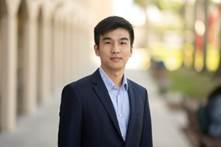Title:Understanding Human-Building-Emergency Interactions in the Built Environment
Speaker:Runhe Zhu, Florida International University
时间地点:2023年6月15日(星期四)上午9点30分开始 厚兴楼(综合实验三号楼)329会议室
Abstract:
Emergencies, whether caused by natural disasters or human actions, can have severe consequences in built environments, endangering human lives and causing significant damage. During such emergencies, individuals interact with others in various roles, within different building environments and amidst potential hazards. Therefore, it is crucial to gain a comprehensive understanding of human-building-emergency interactions to effectively mitigate the negative impacts of emergencies. This talk will focus on occupant behaviors in response to different types of emergencies, such as fires and active shooter incidents, and examine how personal, social, and environmental factors influence occupant behavior during emergencies. A series of studies that employ a combination of methods (immersive virtual reality-based experiments, focus group interviews, and machine learning) to investigate and analyze human-building-emergency interactions will be presented. The talk will conclude with a discussion of key findings, reflections on the research, and prospects for future studies in the field.

Bio of the speaker
Runhe Zhu is an assistant professor at the Moss School of Construction, Infrastructure, and Sustainability at Florida International University (FIU). He earned his Ph.D. in Civil Engineering from the University of Southern California (USC). He also obtained his MS degree in Computer Science and Electrical Engineering from USC. Prior to that, he received his bachelor’s degree in construction management from Tianjin University. His research focuses on human-building interactions, occupant safety, sustainable and resilient built environment, and smart and connected communities.